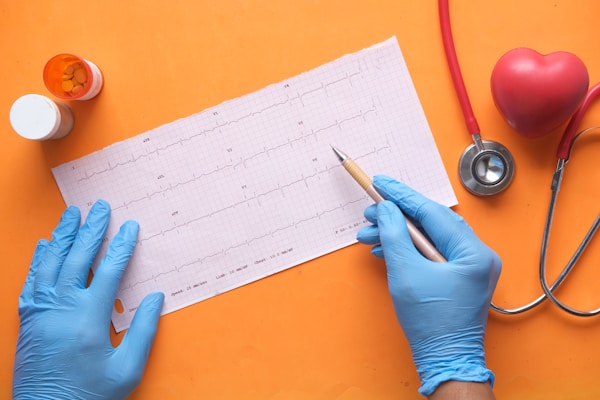Heart disease is the leading cause of death for people of all genders in the United States. According to the American Heart Association, heart disease kills more people each year than cancer and all forms of accidents combined. However, many people do not know they have heart disease until it is too late. That’s why it’s crucial to go see a cardiologist if you notice any symptoms associated with a heart problem. A cardiologist is a doctor who specializes in diagnosing and treating heart conditions and diseases. You also need to know what to pay attention to if you want to protect your health. If you want to learn more, keep reading to find out about some signs you need to get your heart checked out.
What are some signs you need to get your heart checked out?

First, you should know that heart problem can be life-threatening. If you’re experiencing any symptoms that could be related to a heart problem, it’s critical to get checked out right away. You should look for an experienced and reputable cardiologist that has worked with patients with your condition before, like these cardiologists in Los Angeles. A cardiologist can help diagnose the problem and create a treatment plan that’s right for you. If you’re not sure if you’re experiencing symptoms of a heart problem, it’s always a good idea to talk to your doctor.
There are a few common signs that can indicate that you need to get your heart checked out. If you experience any of the following, it’s best to speak with a doctor: chest pain or pressure, shortness of breath, sudden dizziness, unusual fatigue, heart palpitations, hot flashes, sweating, nausea, or confusion. If you have a family history of heart disease, it’s important to be especially vigilant about monitoring any potential signs and symptoms. Using tobacco products or having a diagnosis of diabetes mellitus can also elevate your risk.
High blood pressure is another clear sign you need to get your heart checked out. High blood pressure, also known as hypertension, is a serious condition that can lead to a heart attack or stroke. Left untreated, it can also cause other health problems, such as kidney damage and heart failure.
How else can you protect your heart health?

A heart-healthy diet is required if you want to protect your heart health. Fruits and vegetables are loaded with antioxidants, which can help protect your heart from damage. They’re also a good source of fiber. Saturated and trans fats can raise your bad cholesterol levels and increase your risk of heart disease. Avoid foods that are high in these unhealthy fats, and instead choose foods that are high in healthy fats, like omega-3 fatty acids. Try to stick to whole, unprocessed foods as much as possible, as processed foods are high in sodium and sugar.
Lack of sleep can have a significant impact on your heart health as well. Sleep deprivation is linked with a number of health problems, including heart disease. Not getting enough sleep can increase your risk for heart attack, stroke, and other cardiovascular issues. Sleep deprivation can cause your blood pressure to rise and lead to obesity and diabetes, which are also risk factors for heart disease. If you’re having trouble sleeping on a consistent basis, you should talk to your doctor about finding a solution as soon as possible.
Your heart is one of the most essential organs in your body. It is responsible for pumping blood throughout your body. When your heart is healthy, it can function properly and keep you healthy. However, when your heart is not healthy, it can cause many problems, many of which can be fatal. The good news is that there are many ways to take care of your heart, including making an appointment with a cardiologist if you notice common signs of a heart problem. You can also eat a heart-healthy diet and get plenty of sleep to maintain your heart health. If you follow the tips in this article, you can be sure you’re taking the best possible care of yourself.










